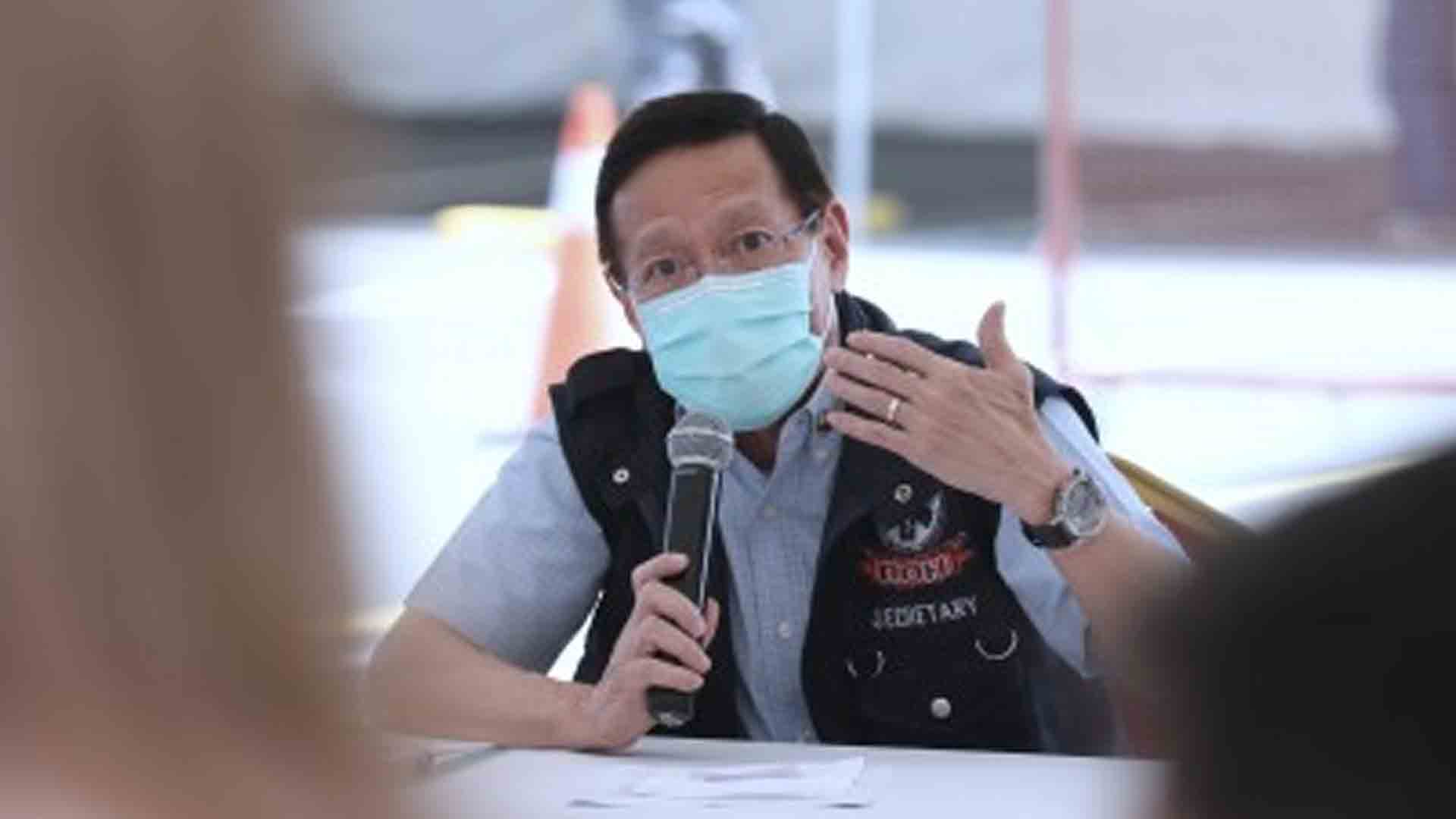Individuals who have already been inoculated with the Covid-19 vaccine would still need to follow the government’s travel protocols, Health Secretary Francisco Duque III said Monday.
During the House health committee’s hearing into the government’s Covid-19 vaccination plan, Duque said vaccinated individuals may not be exempted yet from travel protocols since there is no sufficient evidence showing that the available Covid-19 vaccines can prevent the transmission of the virus.
“They will continue to follow on these existing protocols. They will not be exempt just because they have been vaccinated, because as earlier pointed out, it is not yet clear nor there is sufficient body of evidence to show that the vaccines can actually prevent the transmission,” Duque said.
Infectious disease expert Dr. Edsel Salvaña said there is no existing Covid-19 vaccine that can prevent transmission at this point.
Salvaña said AstraZeneca, Sinovac, and Moderna Covid-19 vaccines can prevent 100 percent of severe disease, while Pfizer’s prevention rate is at 89 percent.
Salvaña stressed that the most important part of the vaccination program is the prevention of severe disease and to save the vulnerable population.
The government is set to launch a nationwide Covid-19 program, which aims to establish a sustainable and fully integrated vaccine deployment and immunization program against virus.
The program will utilize the framework of a whole-of-nation and whole-of-society approach in collaboration with the national government agencies, local government units and the private sector.
Some LGUs have already earmarked funds for the Covid-19 vaccination of their constituents.
Quezon Rep. Angelina Tan, chairperson of the House health panel, said the briefing comes in light of the need to expedite the Covid-19 immunization program as well as ensure that it is safe and effective and that all agencies concerned are on the same page.
“We cannot afford to make mistakes at this critical juncture in our fight against the pandemic. We have to be on time for the Covid-19 inoculation drive. We need the vaccine rollout to be ready without compromising its safety and efficacy in order to build the trust and confidence of the public,” Tan said.
Duque said the vaccine roadmap seeks to promote safe, equitable and cost-effective immunization of Filipinos; full recovery of the economy and normalcy of the lives of the people; and sustainable public immunization for the next three to five years.
He said the country may reach herd immunity within the year if there is enough global supply of Covid-19 vaccines that the country can access and utilize.
National Policy Against Covid-19 chief implementer and vaccine czar Secretary Carlito Galvez Jr. said areas with a high rate of Covid-19 cases such as Metro Manila, Metro Cebu and Davao will be given priority for the vaccination rollout where 24,668,128 sectoral priorities have been selected as follows: 1,762,994 frontline health workers; 3,789,874 indigent senior citizens; 5,678,544 remaining senior citizens; 12,911,193 remaining indigent population; and 525,523 uniformed personnel, which accounts for more than 22 percent of the country’s projected population of 108.8 million, as of the third quarter this year.
Galvez said those who will be vaccinated also include teachers and social workers in the public and private sectors followed by all remaining government workers; essential workers in agriculture, the food industry, transportation and tourism; sociodemographic groups in significantly higher risk areas other than the senior citizens and indigent population such as those persons deprived of liberty, persons with disabilities, and Filipinos living in high-density areas; overseas Filipino workers; other remaining workforce; and the remaining Filipino citizens. (PNA)





















